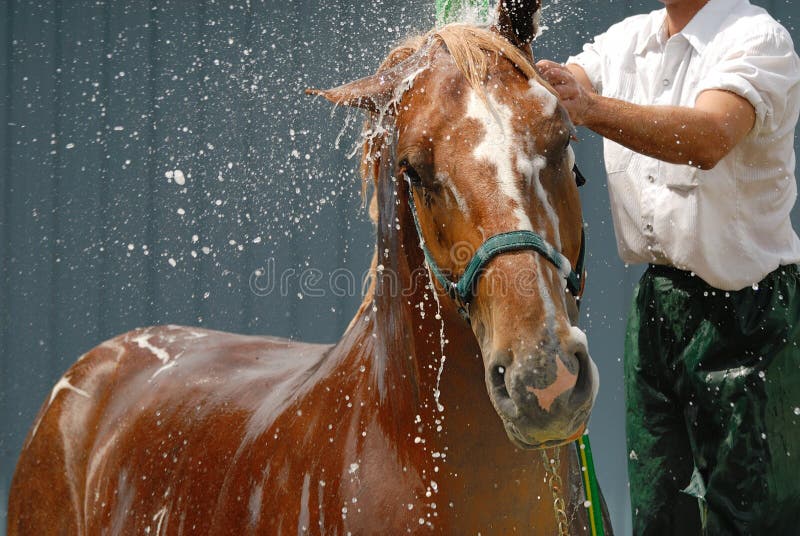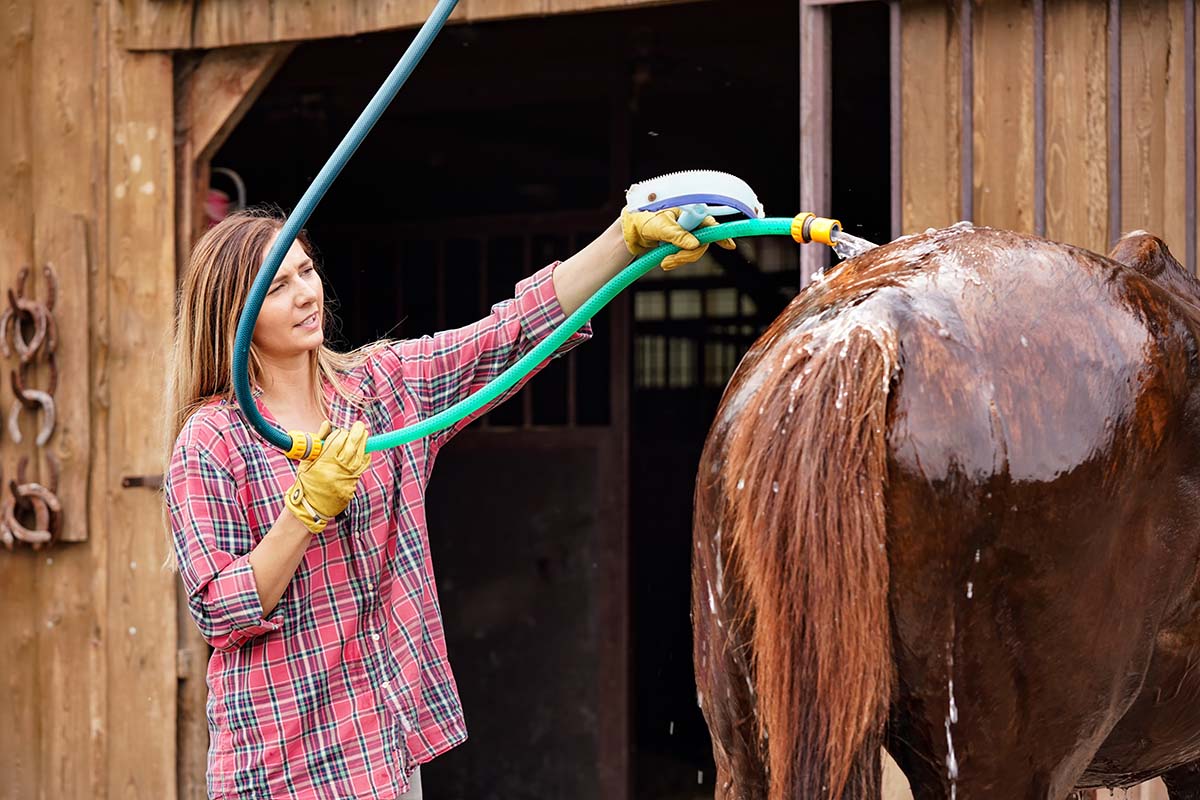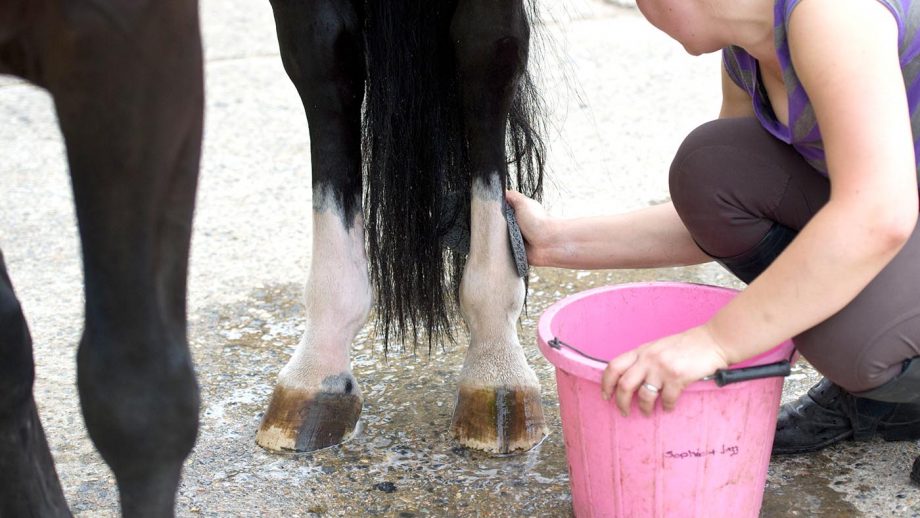When it comes to grooming our beloved horses, one common query that arises is: Can horse shampoo cause dryness? As horse enthusiasts, ensuring the well-being of our equine friends is paramount. This article delves into the potential effects of horse shampoo on a horse’s coat and skin, providing insights into whether it can lead to dryness.

Understanding Horse Shampoo
Horse shampoo is specially formulated to cleanse and condition a horse’s coat. It is designed to remove dirt, sweat, and oils without stripping away natural oils that protect the horse’s skin. However, not all horse shampoos are created equal, and it’s crucial to choose the right one for your horse’s specific needs.
Ingredients in Horse Shampoo
Most horse shampoos contain surfactants, which help to cleanse the coat. They may also include ingredients like aloe vera, lanolin, and tea tree oil, known for their conditioning and soothing properties. However, some shampoos may contain harsh chemicals that can potentially lead to dryness.
Factors Contributing to Dryness
While horse shampoo is generally safe for equine use, several factors can contribute to dryness:
Frequent Washing
Frequent washing can strip the coat of natural oils, leading to dryness. It’s essential to find a balance between keeping your horse clean and maintaining the natural oil balance.
Harsh Ingredients
Shampoos with sulfates, parabens, and artificial fragrances can irritate the skin and cause dryness. Opt for shampoos with natural ingredients to minimize the risk.
Water Quality
The quality of water used during bathing can also affect the skin. Hard water can leave residues that contribute to dryness.
Choosing the Right Shampoo
To prevent dryness, it’s crucial to select a shampoo that suits your horse’s specific needs. Here are some tips:
Opt for Moisturizing Shampoos
Choose shampoos that are specifically labeled as moisturizing. These contain ingredients that help retain moisture in the coat and skin.
Read Labels Carefully
Look for shampoos with natural ingredients like coconut oil, chamomile, and oatmeal. Avoid those with harsh chemicals.
Consult with Professionals
When in doubt, consult with a veterinarian or equine grooming expert to find the best quality horse shampoos for your horse.
Alternatives to Horse Shampoo
If you’re concerned about potential dryness, consider alternatives to traditional horse shampoos:
DIY Natural Shampoos
Create your own shampoo using gentle, natural ingredients like apple cider vinegar and aloe vera.
Conditioning Treatments
Use conditioning treatments after shampooing to lock in moisture and keep the coat soft.
Tips for Shampooing Your Horse
Proper shampooing techniques can help prevent dryness:
Use Lukewarm Water
Hot water can strip oils, while cold water can be uncomfortable. Lukewarm water is ideal.
Rinse Thoroughly
Ensure all shampoo is rinsed out to prevent residues that can cause dryness.
Dry Gently
Pat the coat dry with a towel rather than rubbing vigorously, which can damage the hair.
Possible Signs of Dryness
Be on the lookout for signs of dryness, such as flaky skin, dull coat, and excessive itching. If you notice these signs, it may be time to adjust your grooming routine.
Conclusion
While horse shampoo is designed to clean and care for your horse’s coat, improper use or harsh ingredients can lead to dryness. By choosing the right products and following proper grooming techniques, you can maintain a healthy, shiny coat and avoid the unpleasant effects of dryness.

FAQs
1. Can I use horse shampoo on my dog?
While some horse shampoos are safe for dogs, it’s best to choose products specifically formulated for dogs to ensure safety and effectiveness.
2. How often should I shampoo my horse?
It’s generally recommended to shampoo your horse every 4-6 weeks, but this can vary based on your horse’s activity level and skin condition.
3. What should I do if my horse’s skin becomes dry?
If you notice skin dryness, consider reducing the frequency of baths, using a more moisturizing shampoo, and consulting with a veterinarian for additional care advice.
For more insights on selecting the right shampoo, check out this external guide.
This article contains affiliate links. We may earn a commission at no extra cost to you.








